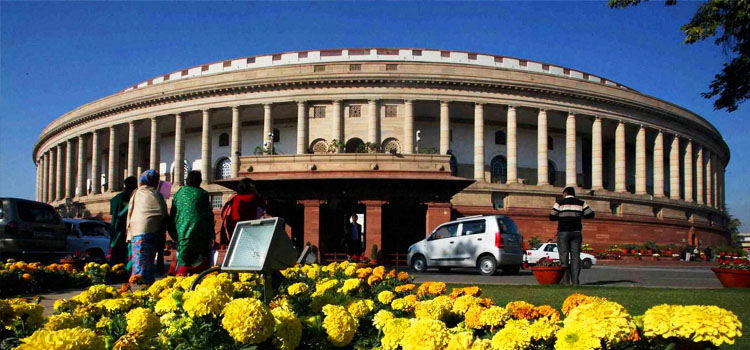Directive Principles of State Policies in India
Posted On : November 1, 2022

Table of Contents
The Sub-committee of Fundamental Rights constituted by the Constituent Assembly had suggested on enforcing two types of fundamental rights in the Indian Constitution - one which can be enforced in the courts of law and the other which because of their different essence cannot be implemented in the Indian Law Courts. Later on however the former was put under the head Fundamental Rights as Part III and the latter was put separately in Part IV of the Constitution under the heading Directive Principals of State.
The Articles included in Part IV of the Constitution (Article 36 to 51) contains certain Directives which are the guidelines for the future government to lead the country. Article 37 provides that the ‘provisions contained in this part
(i) shall not be enforceable by any court but the principles therein lay down are nevertheless
(ii) fundamental in the governance of the country and it shall be the duty of the state to apply these principles in making laws.
The directives, however, differ from the Fundamental Rights contained in Part III of the Constitution or the ordinary loss of the land in the following respects:
- The Directives are not enforceable in the courts and do not create any justiciable rights in favor of individuals.
- The Directives require to be implemented by legislation and so long as there is no law carrying out the policy laid down in a Directive neither the state nor an individual can violate any existing law.
- The Directives per-se do not confer upon or take away any legislative power from the appropriate legislature.
- The courts cannot declare any law as void on the ground that it contravenes any of the Directive Principles.
- The quotes are not competent to compel the government to carry out any directives or to make any loss for that purpose.
- Though it is the duty of the state to implement the Directives, it can do so only subject to the limitations imposed by the different provisions of the Constitution upon the exercise of the legislative and executive power by the state.
Classification of Directive Principles of State Policy (DPSP)
The Constitution of India does not formally classify the Directive Principles of State Policy but for better understanding and on the basis of content and direction- they can be classified into three categories. These are as follows:
1. Socialistic Principles
2. Gandhian Principles
3. Liberal-Intellectual Principles
Socialistic Principles
These principles contemplate the ideology of socialism and lay down the framework of a democratic socialist state. The concept envisages providing social and economic justice, so that state should achieve the optimum norms of the welfare state. They direct the state through the following articles:
1. Article 38: To promote the welfare of the people by securing and protecting as effectively as it may a social order in which justice, social, economic and political shall inform all the institutions of the national life.
2. Article 39: To Secure:
(a) Right to an adequate means of livelihood for all citizens
(b) Equitable distribution of material resources of the community for the common good
(c) Operation of an economic system to prevent the concentration of wealth and means of production
(d) Equal pay for equal work for both men and women
Preservation of the health and strength of workers and children against forcible abuse
(e) Opportunities for the healthy development of children.
3. Article 39 A: To promote equal justice and to provide free legal aid to the poor.
4. Article 41: To secure the right to work, right to education and right to public assistance in cases of unemployment, old age, sickness and disablement.
5. Article 42: To make provision for just and humane conditions for work and maternity relief.
6. Article 43: To secure a living wage, a decent standard of living and social and cultural opportunities for all workers. The State shall promote cottage industries on an individual or co-operative basis in rural areas.
7. Article 43 A: To take steps to secure the participation of workers in the management of industries.
8. Article 47: Raise the level of nutrition and the standard of living of people and improve public health.
Gandhian Principles
These principles reflect the programme of reconstruction enunciated by Gandhi during the national movement. In order to fulfil the dreams of Gandhi, some of his ideas were included in DPSP and they direct the state through the following articles:
1. Article 40: To organise village panchayats and endow them with necessary powers and authority to enable them to function as units of self-government.
2. Article 43: To promote cottage industries on an individual or co-operation basis in rural areas.
3. Article 43 B: To promote voluntary formation, autonomous functioning, democratic control and professional management of co-operative societies.
4. Article 46: To promote the educational and economic interests of Scheduled Castes, Scheduled Tribes, and other weaker sections of the society and to protect them from social injustice and exploitation.
5. Article 47: To prohibit the consumption of intoxicating drinks and drugs which are injurious to health.
6. Article 48: To prohibit the slaughter of cows, calves and other milch and draught cattle and to improve their breeds.
Liberal-Intellectual Principles
These principles are inclined towards the ideology of liberalism and they direct the state through the following articles:
1. Article 44: To secure for all citizens a uniform civil code throughout the country.
2. Article 45: To provide early childhood care and education for all children until they complete the age of six years.
3. Article 48: To organise agriculture and animal husbandry on modern and scientific lines.
4. Article 48 A: To protect and improve the environment and to safeguard forests and wildlife.
5. Article 49: To protect monuments, places and objects of artistic or historic interest which are declared to be of national importance.
6. Article 50: To separate the judiciary from the executive in the public services of the State.
7. Article 51: To promote international peace and security and maintain just and honourable relations between nations; to foster respect for international law and treaty obligations, and to encourage settlement of international disputes by arbitration.
The Conflict Between a Fundamental Right and Directive Principle of State Policy
The declarations made in Part IV of the Constitution under the head ‘Directive Principles of State Policy’ are in many cases of a wider import than the declarations made in Part III as ‘Fundamental Rights’. Hence, the question of priority in case of conflict between the two classes of the provisions may easily arise. What will be the legal position if a law and enacted to force a Directive Principle violates a Fundamental Right? Initially, the courts adopted a strict view in this respect and ruled that Directive Principle could not override a fundamental right, and in case of conflict between the two, the Fundamental Right would prevail over the Directive Principles of State Policy.























